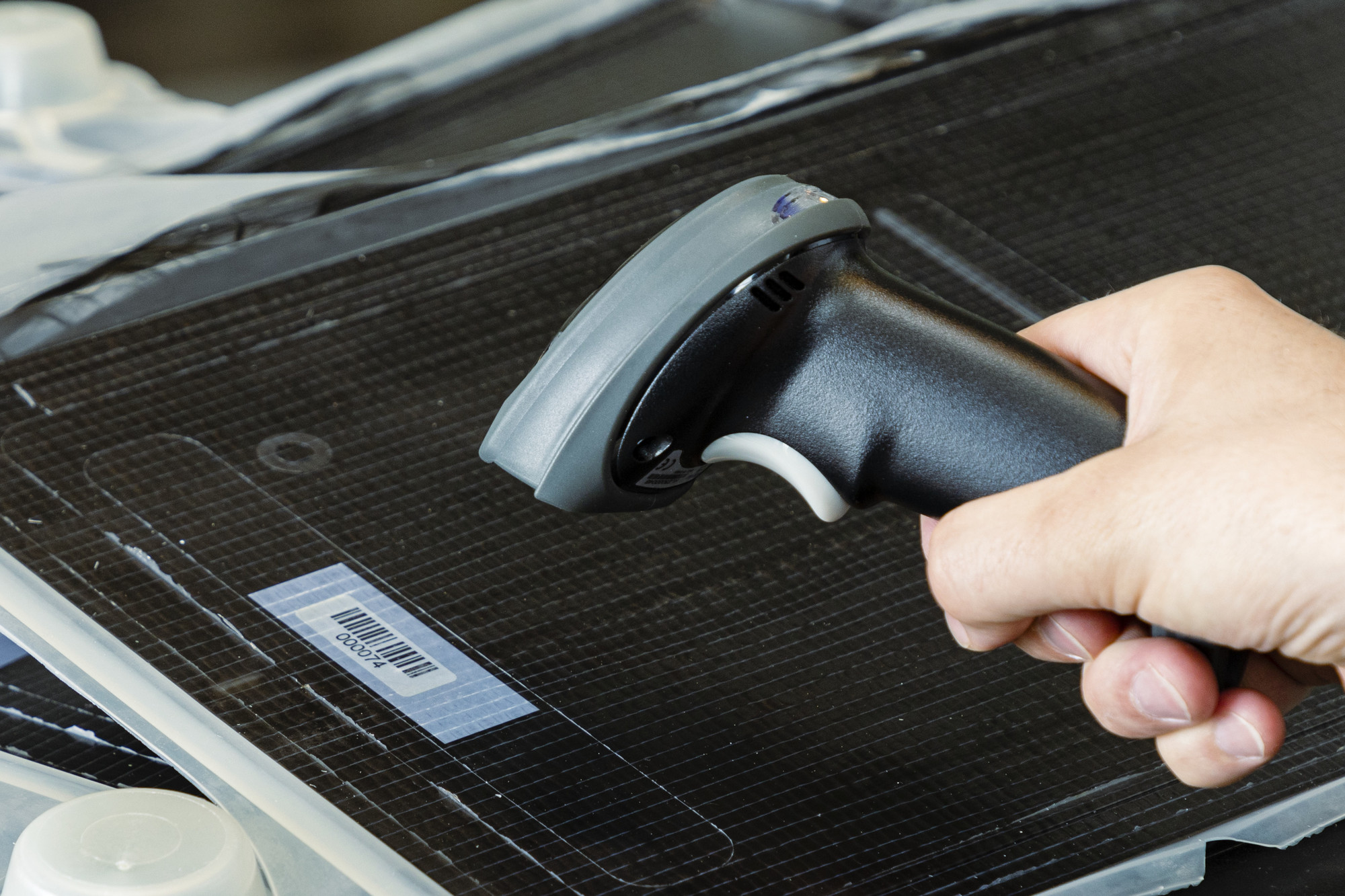Digitalized HP-RTM process chain demonstrates potential for automated data acquisition from molding to post-processing.
The PREDATOR research project aims to develop a reliable HP-RTM process for industrial large-scale production using intelligent data processing systems.
An initial test campaign has recently been completed at Fraunhofer ICT. As part of this campaign the control systems and sensors of the mold provided by Alpex Technologies, RTM equipment and press have been integrated to allow for consistent process data acquisition. A production-ready cycle time was achieved, and a large batch of 400 components was produced. Each individual component is identifiable in the resulting dataset.
During the next stage of the program these components will be machined at Hufschmied Zerspanungssysteme GmbH. The generated structure borne sound sensor data and quality inspection results will be merged to the existing database.
Concurrently work has started on the derivation of data-based quality criteria and process performance indicators. These will be validated in a second test campaign later in the project.
This effort will be supported by tool wear characterization carried out both for the milling tools as well as the HP-RTM mold throughout the project, demonstrating the power of process chain wide data integration and learning.
Digitalized HP-RTM process chain allows significant cost reduction through data-based quality control and predictive maintenance
High-pressure resin transfer molding (HP-RTM) is used to produce high-quality applications, e.g. in the automotive industry. The components have a very high lightweight potential due to good material properties at low weight and are suitable for structural automotive parts, e.g. roof, doors and trunk lids.
The HP-RTM process is suitable for series production of composite components in terms of cycle times, but still poses a challenge in terms of robustness and reliability.
This characteristic leads to relatively high reject rates and makes the process unprofitable for many applications.
A major reason for this is the manual process data acquisition. A transfer of process data along the individual process steps as well as their use for a quality assessment (QA) does not take place according to the current state of the art. The PREDATOR research project now provides a remedy. Within the project, a reliable HP-RTM process for industrial large scale production using intelligent data processing systems will be developed.
Data will be acquired and transferred through the process chain (molding to post- processing) for monitoring the processing conditions.
This allows to predict the maintenance intervals of the HP-RTM mold based on the generated process data that is also used for optimizing the milling parameters.
In the milling process, integrated sensors monitor the components structure borne sound for tool wear and part QA prediction.
Up to 30% of the total production costs could be saved by changing from a 100% inspection to a milling-process-integrated QA.

